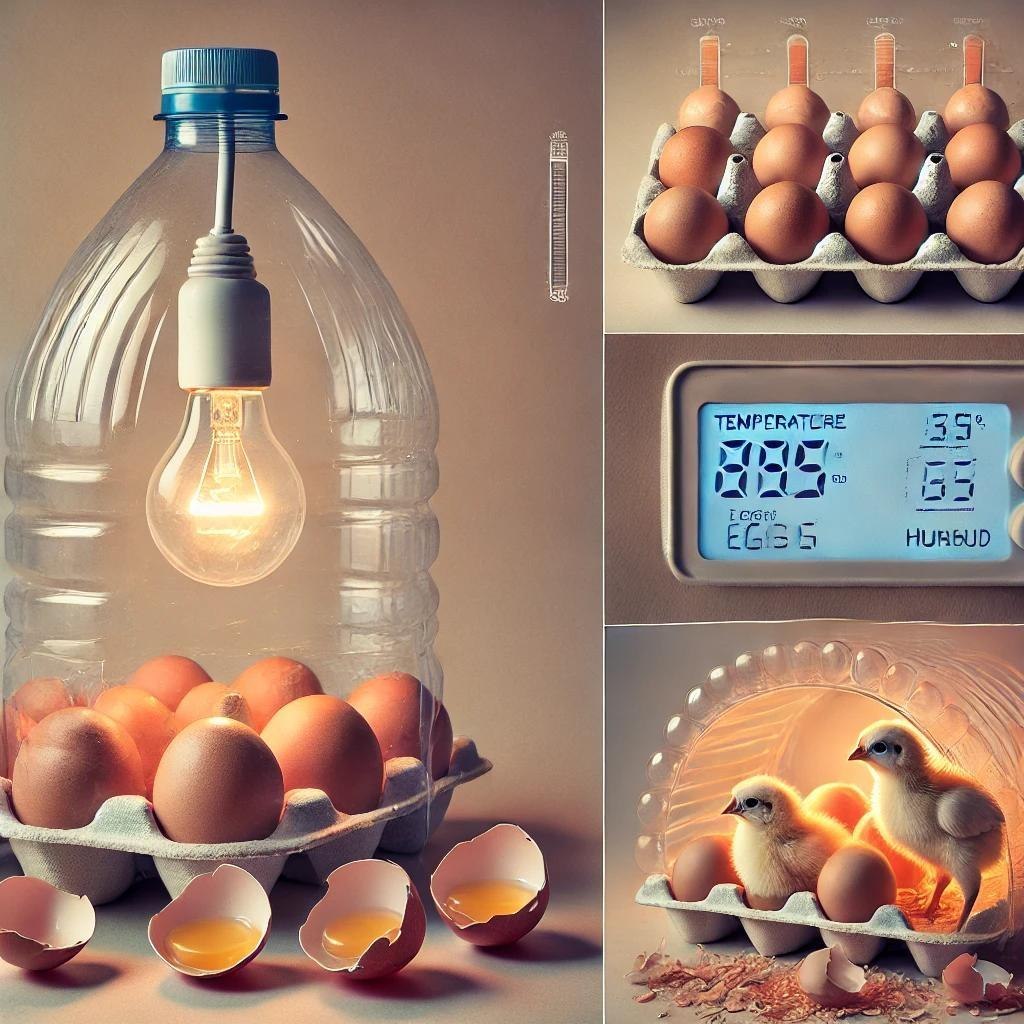Step-by-Step Instructions
1. Prepare the Water Bottle
- Cut the top third of the water bottle off. The bottom part will serve as the incubator, and the top part can act as a removable lid.
- Ensure the edges are smooth to avoid injuries when assembling.
2. Install the Heating Element
- Attach the low-wattage bulb or small heating element to the inside of the bottle using a lamp holder.
- Position the bulb so that it doesn’t directly touch the eggs but provides consistent heat throughout the incubator.
- Ensure safe wiring to prevent short circuits. Use electrical tape to secure connections.
3. Set Up Temperature and Humidity Control
- Place the thermometer inside the incubator where the eggs will be positioned. Maintain a temperature between 99°F and 102°F (37.5°C – 39°C).
- Add a sponge or a small water container to the bottom of the incubator to create humidity. Aim for humidity levels of 50-60% during incubation and increase to 65-70% during the final three days before hatching.
4. Provide Insulation
- Wrap the outside of the water bottle with insulating material to retain heat. Make sure to leave openings for ventilation.
5. Create Ventilation
- Cut small holes in the sides of the bottle to allow fresh air circulation. Proper ventilation is essential for oxygen exchange.
6. Position the Eggs
- Place the eggs inside the incubator on a soft surface or a small mesh to prevent direct contact with the bottom.
- Position the eggs horizontally and turn them manually 3-5 times daily to prevent the embryo from sticking to the shell. Stop turning the eggs three days before the expected hatch date.
7. Monitor and Adjust
- Regularly check the temperature and humidity levels, making adjustments as needed.
- Keep the incubator in a stable environment away from drafts or direct sunlight to maintain consistent conditions.
- see more on the next page
ADVERTISEMENT

